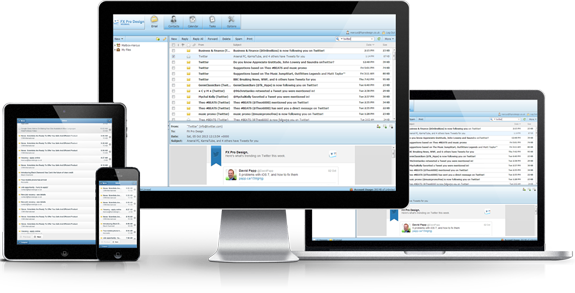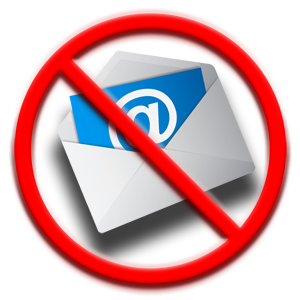- Details
- Hits: 3900
Website & Mobile Devices At Risk
 In a recent report Symantec provides an overview and analysis 2016 in global internet threat activity. From the time a security exploit is found, until the time that a patch is available from software developers, the average time of exposure was 7 days in 2015. Once a patch is available, it generally take another day to distribute the patch. Hacker exploit these vulernabilities by loading malicious software (malware, keyloggers, worms, viruses, ransomware, etc.) on to hacked website. The hacked site then distributes the malcious software to unsuspecting site visitors' computers or mobile devices. In some cases, the web site itself is even turned into a 'spam zombie' sending out 10 of thousands of junk emails per hour, which distribute everything from porn to phishing schemes, to more malicious software.
In a recent report Symantec provides an overview and analysis 2016 in global internet threat activity. From the time a security exploit is found, until the time that a patch is available from software developers, the average time of exposure was 7 days in 2015. Once a patch is available, it generally take another day to distribute the patch. Hacker exploit these vulernabilities by loading malicious software (malware, keyloggers, worms, viruses, ransomware, etc.) on to hacked website. The hacked site then distributes the malcious software to unsuspecting site visitors' computers or mobile devices. In some cases, the web site itself is even turned into a 'spam zombie' sending out 10 of thousands of junk emails per hour, which distribute everything from porn to phishing schemes, to more malicious software.
Last year 429 million people had personal records stolen in security breaches. Everything from financial records, to credit card numbers, to address books, to medical records have become targets of hackers. What's worse, is that only the "reported" attacks that have been disclosed by those who's systems were compromised. The real numbers are likely much higher from undisclosed hacking incidents that have not been reported, or perhaps not even detected. Many website are vulnerable to attack due to out-dated software and business both large and small are being systematically targeted.
Ransomware attacks increased by 35 percent in 2015, with some recent attacks recently making the national news as hospitals and other companies paid out 10 of thousands of dollars to regain control of their computer networks and business critial systems. Unsuspecting consumers have even been taken in by fake technical support scheme where malware gets on their computer and pop-up messages urge them to call a technical support number to fix a problem by selling them a worthless service. Internet security companies like Symantec have blocked over 100 million such attacks.
Some of the future risks from cybercrime center around the connected mobile devices we are all become accustomed to having at our fingertips, from smartphones, to smart watches, to smart TV's,to smart cars. Currently in the USA there are 25 connected devices for every 100 people, and that number is rising fast. By 2020 it is estimated that there will be 20.8 billion connected devices in the world. Researched have already proven vulnerabilities in everything from insulin pumps and implated defibrillators, to Fiat Chrysler issuing a recall on 1.4 million vehicles when it was shown that hackers could take control of a car remotely. In the UK thieves are hacking keyless entry systems to steal cars.
The bottom line is that no business or individual is safe, we are all at risk. Keep your anti-virus software up to date, along with all operating system updates and patches. This include eveything from your desktop computers, the your smart devices, to your website and more. Sometimes it can be annoying when those update reminders keep poping up. But, the risk of not keeping up to date is far worse.
- Details
- Hits: 4205
 More Secure, Better Deliver, New Features
More Secure, Better Deliver, New Features
 iComEx is please to introduce our new email services. Effective March 1, 2016 iComEx is now offering IMAP protocol email accounts with 1GB of space. The new IMAP email services are running on dedicated email servers, not as part of the regular web site hosting services. This allows us to offer these new account with more space available than to previous POP3 accounts, in a more secure environment, with better deliverability.
iComEx is please to introduce our new email services. Effective March 1, 2016 iComEx is now offering IMAP protocol email accounts with 1GB of space. The new IMAP email services are running on dedicated email servers, not as part of the regular web site hosting services. This allows us to offer these new account with more space available than to previous POP3 accounts, in a more secure environment, with better deliverability.
POP vs IMAP
Both POP (Post Office Protocol) and IMAP (Internet Message access protocol) allow people you get access to your email from a remote email server. However, that is where most similarities end. POP simply downloads all of your email to your local computer, and usually (unless its configured otherwise) deletes the email from the remote server. The problems start if you have more than one device where you want access and read your mail (desktop, laptop, tablet or phone). Here's why it's bad: Not only do you have to download your email to each device, you also have to delete or file the same email on every device.
Logging into each device with POP, you will see lots of unread emails with no indication of which you deleted, read, flagged or filed. Any folders you created and organize on one device won't be replicated on your other devices.
IMAP allows you to store your email on remote email servers. This two-way protocol also allows the you to synchronize your email among multiple devices, which is extremely important today, when most of us have at least two devices - their laptop and smartphone.
Transition
Beginning on March 1, 2016 iComEx will start the process of moving all of our client's email account from the current email services, that are shared on the web site servers, to the new dedicated email servers. We will be in contact with each client to coordinate this transition. Our hope it to have everyone moved by the end of April at the latest.
During this transition process each client (or individual email user) will be required to make changes in their email software and devices to connect to the new email account(s) and import any email you want to migrate from service to another. A good basic guide to this process can be found here:
How To Switch From POP to IMAP In 5 Minutes
Follow the instructions in the "Other" column for your software or device.
The only notable change to this instruction is that your do not need to manually configure the new account. You should be able to allow the auto-configure tools in your software or device set up the new account for you. You can follow the manual process if needed.
Fees
There is a nominal price increase, from $3.00 per account per month to $5.00 per account per month, for the new IMAP based email account. All account come with 1GB of storage. Additional storage is available at a cost of $1.00 per GB per month per account. All accounts still enjoy the MX Guardian spam and virus filtering service.
Setup assistance is available for those who need it:
Remote setup assistance is $75.00 per hour.
On-Site setup assistance is $95.oo per hour, plus travel time.
To schedule assistance, please call us at 972-712-2100 and ask for Caryn. She will be happy to schedule a session for you.
- Details
- Hits: 4307
Blocking and Black Listing
 In recent weeks, in the wake of the numerous hacking episodes that iComEx has been working diligently to remediate, we have been experiencing an increase in email delivery issues. One of the most common exploits that hacker employ is to embed malicious scripts behind the scenes on websites that allow the hacker to then use the website hosting account as a platform for sending out spam (bulk email), spreading malware or running phishing schemes. Spam bots are what causes a site to start spewing tens of thousands of pieces of junk mail per hour. This sort of volume spike in junk mail tends to earn our servers' IP address spot in several industry blacklists, in addition to private blocking lists employed by many internet service providers (ISP's). iComEx even uses the Spamhaus and Spamcop blacklists, along with internal blocking lists on our servers to check incoming email. This is one of the most common mean of helping control the amount of spam on the internet.
In recent weeks, in the wake of the numerous hacking episodes that iComEx has been working diligently to remediate, we have been experiencing an increase in email delivery issues. One of the most common exploits that hacker employ is to embed malicious scripts behind the scenes on websites that allow the hacker to then use the website hosting account as a platform for sending out spam (bulk email), spreading malware or running phishing schemes. Spam bots are what causes a site to start spewing tens of thousands of pieces of junk mail per hour. This sort of volume spike in junk mail tends to earn our servers' IP address spot in several industry blacklists, in addition to private blocking lists employed by many internet service providers (ISP's). iComEx even uses the Spamhaus and Spamcop blacklists, along with internal blocking lists on our servers to check incoming email. This is one of the most common mean of helping control the amount of spam on the internet.
iComEx makes use of cPanel, the industry leading commercial web hosting platform. cPanel, and most other commercial web hosting platforms, combine website hosting and email hosting into a single, centrally managed set of service on the same server. As a result, an exploit effecting a website on a given machine can effect the email also hosted on that same machine. Once the exploit is identified and remediated, we then begin the process of figuring out what blacklists we are on and requesting removal. The private blocking lists run by the various ISP's such as Southwestern Bell (sbcglobal), AOL, Yahoo, Gmail, AT&T, etc. are much harder to get off of. Sometimes the block are temporary in nature, and sometime they are much more permanent.
iComEx is working with our data center and the major ISP's to keep email moving smoothly. Changes to the iComEx email infrastructure will be coming up in March and April.
- Details
- Hits: 4548

We Are All In The Crosshairs
 Hacking has been on the increase for a long time now. The US Department of Justice says that cybercrime is one of the greatest threats facing our country. Recent reports show massive increases in hacking attempts, and many organizations are unprepared to deal with the realities of hacking when it occurs. A Los Angeles hospital even paid a $17,000 ransom this week to get its computer network back from hackers that got in and locked them our of their entire system.
Hacking has been on the increase for a long time now. The US Department of Justice says that cybercrime is one of the greatest threats facing our country. Recent reports show massive increases in hacking attempts, and many organizations are unprepared to deal with the realities of hacking when it occurs. A Los Angeles hospital even paid a $17,000 ransom this week to get its computer network back from hackers that got in and locked them our of their entire system.
We regularly get asked about how secure our servers are. That is completely understandable, when you are putting your trust and faith in us to manage the servers, your websites and sensitive data, you want some assurances that the servers you are hosted on are as secure as they can be made. Without giving away the farm, we can say that we keep our servers very secure, using such commercially reasonable means as we have at our disposal.
Most of the time people are not aware that the biggest culprit that can cause their website to be compromised is actually not even related to the server itself, but the web site applications that run on it. In this day and age, open source Content Management Systems (CMS) like Joomla, WordPress and Magento are some of the most commonly used website development and management applications. Those who are out to wreak havoc on websites like yours look to find the biggest bang for their buck by finding exploits in any of these software applications.
On nearly a daily basis, updates to Joomla, WordPress and Magento are being put out by their development teams, along with the various templates, themes, extensions and plugins associated with them, to close these security vulnerabilities. The rapid speed with which the hackers can pass along their malicious code and inject them in to your website is magnified by the fact that there isn’t just one person trying website after website, but they employ bot networks to do their dirty work. These bots spend their time crawling the internet to look for these vulnerabilities that they are attempting to exploit. As an example, back in December of 2014, the security team at Sucuri discovered more than 100,000 WordPress sites were hit with the SoakSoak.ru malware campaign, resulting in more than 11,000 domains being blacklisted by Google.
The whole purpose of malware is simply to use your website to then carry out the tasks of sending spam, setting up phishing sites, or spreading more malware or any other malicious activity. What’s even more problematic is that they will often leave back doors for them to get back in once you believe you’ve cleaned up the site, and you find yourself once again dealing with the website being compromised.
Like other hosting service providers, iComEx and our clients are not immune from the effects of these kinds of attacks. Since November 2015 iComEx has experienced an increase in hacking attempts beyond anything we have seen in our 18 years in business. In the past we would see a web site or an email account successfully hacked once, maybe twice a year. In the past 4 months we have several web sites and email accounts compromised, and it has not slowed down. Usually the negative impact is that a compromised web site starts sending out tons of spam emails. However, we have seen sites end up with radical Islamic materials, porn, and even a ransom demand like the hospital listed above.
As is the standard among hosting companies and internet service providers, iComEx has an Acceptable Use Policy (AUP) that is part of our General Terms of Service (TOS). Again, like others in our industry, our current AUP & TOS states that the ultimate responsibility for protecting access to passwords and keeping your web site secure rests with our clients. Part of our Professional Webmaster Services hosting plan includes installing new maintenance updates and security patches for major version of your web site software. Maintenance updates and security patches are not major version software upgrades.
In dealing with this increase in hacking activity, iComEx is in the process of drafting new policies regarding compromised email accounts and websites, implementing new security audit procedures and developing new service offerings that include managed backup & restoration services and hacking remediation & repair services. More information about these will be forthcoming in the next few weeks.
- Details
- Hits: 4022
Welcome To The New Lake Kiowa Realty Website
 Lake Kiowa Realty is a full service real estate brokerage office serving Lake Kiowa and the surrounding communities. Lake Kiowa Realty has been an established real estate office in this area of North Texas for many years. Our particular areas of specialization include lake homes, golf course homes, country homes, acreage and ranches.
Lake Kiowa Realty is a full service real estate brokerage office serving Lake Kiowa and the surrounding communities. Lake Kiowa Realty has been an established real estate office in this area of North Texas for many years. Our particular areas of specialization include lake homes, golf course homes, country homes, acreage and ranches.
Lake Kiowa Realty looks forward to many more years of serving the Lake Kiowa community. Please come see us for all of your real estate needs, but feel free just to stop by any time and say hello too! Lake Kiowa Realty is open 7 days a week – Monday through Saturday from 9:00 AM to 5:00 PM and Sunday from 11:00 AM to 5:00 PM.
Lake Kiowa is located one hour north of the Dallas/Fort Worth metroplex and ten miles southeast of Gainesville, Texas. Lake Kiowa Realty is a full service real estate brokerage serving the area in and around the Lake Kiowa community.
Lake Kiowa is a private gated community featuring lakefront homes, golf course homes and interior homes amidst rolling hills and a beautiful private lake, great for swimming fishing, water skiing and other water sports. We have two beaches offering parks for picnics, playgrounds for kids, basketball, tennis and covered pavilions for reunions.
Lake Kiowa features an 18 hole championship golf course. ( Golf is a FREE amenity. ) The clubhouse is a focal point of activity for members and their guests. Food service and a lounge are offered for members. Social functions include dances, bingo card games and community parties!
Lake Kiowa is a private GATED COMMUNITY, so please click the Free Entry Pass icon for your visit to Lake Kiowa. Lake Kiowa is the place you will want to call home!
The agents of Lake Kiowa Realty are always available to help you with any questions or concerns.

